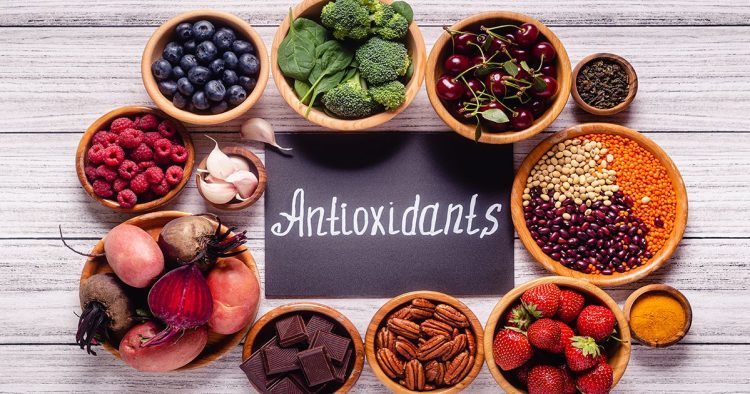Introduction: Understanding the Skin-Diet Connection
We’ve all heard the saying, “You are what you eat.” But could it be that what we eat also shapes how we look, especially when it comes to our skin? The skin, the body’s largest organ, is not only a protective barrier but also a reflection of our internal health. As the first line of defense against environmental pollutants, UV rays, and harmful pathogens, skin needs proper nourishment to stay healthy and vibrant. For years, scientists and dermatologists have explored the relationship between diet and skin, and today, more than ever, there’s compelling evidence suggesting that what’s on your plate can profoundly affect the appearance and health of your skin.
In this article, we’ll delve deep into how different nutrients, vitamins, and dietary choices play a pivotal role in transforming your skin. We’ll also tackle common misconceptions and provide actionable tips that you can easily incorporate into your daily life. Ready to discover how a simple change in diet could revolutionize your skincare routine? Let’s dive in!
1. The Skin’s Nutritional Needs
Just like every other part of your body, your skin needs specific nutrients to function at its best. Let’s take a look at some of the most essential nutrients for skin health.
a. Vitamin C: The Skin’s Best Friend
Vitamin C is a powerful antioxidant that helps protect the skin from the damaging effects of free radicals (unstable molecules that contribute to aging and tissue damage). Additionally, vitamin C supports collagen production, the protein responsible for skin structure and elasticity. Collagen is like the scaffolding that holds your skin together—without it, skin can become saggy and wrinkle-prone.
Foods rich in Vitamin C include:
- Citrus fruits (oranges, grapefruits)
- Bell peppers
- Strawberries
- Kiwi
b. Omega-3 Fatty Acids: Anti-Inflammatory Wonders
Omega-3s are crucial for maintaining the skin’s natural barrier, preventing dehydration and inflammation. These healthy fats also help reduce acne and the severity of conditions like eczema and psoriasis.
You can find omega-3 fatty acids in:
- Fatty fish (salmon, mackerel, sardines)
- Chia seeds
- Walnuts
- Flaxseeds
c. Vitamin E: The Skin Protector
Vitamin E is a fat-soluble antioxidant that plays a major role in protecting the skin from oxidative stress and UV damage. It can also promote the healing of scars and improve overall skin texture.
Top sources of Vitamin E include:
- Almonds
- Sunflower seeds
- Spinach
- Avocados

2. The Role of Hydration: Water and Skin Health
No conversation about skin health is complete without mentioning hydration. Your skin is made up of water, and when you don’t hydrate properly, the skin can look dull, dry, and wrinkled. Hydration helps maintain the skin’s elasticity, supports collagen production, and promotes a plump, youthful appearance.
Besides drinking water, you can increase your water intake by consuming water-rich foods such as:
- Cucumbers
- Watermelon
- Celery
- Lettuce
3. The Dangers of Processed Foods and Sugar
It’s tempting to indulge in processed foods and sugary snacks, but if you’re aiming for clear, glowing skin, you may want to rethink those choices. Research has shown that high glycemic index foods—like white bread, pasta, and sugary drinks—can trigger acne outbreaks and increase the aging process by causing inflammation in the body.
Here’s how they affect the skin:
- Inflammation: Processed foods often contain additives, preservatives, and excessive amounts of sugar, which can trigger an inflammatory response in the body. This inflammation shows up on the skin as acne, breakouts, or irritation.
- Glycation: When too much sugar is consumed, it binds to proteins in the body, including collagen, in a process called glycation. This makes collagen stiff and brittle, leading to premature aging, sagging, and wrinkles.
So, while an occasional indulgence is perfectly fine, try to minimize your intake of processed sugars and refined carbohydrates for clearer, younger-looking skin.
4. Gut Health and Skin Health: The Microbiome Connection
It’s no secret that what happens in your gut can affect your skin. A growing body of research shows that a balanced gut microbiome—a diverse community of bacteria in the digestive system—has a direct impact on skin health. An imbalance in gut bacteria (known as dysbiosis) can lead to inflammatory skin conditions like acne, eczema, and rosacea.
Probiotics, which are live bacteria and yeasts that are good for your gut, can help restore balance in the digestive system. Foods like yogurt, kefir, kimchi, and sauerkraut are great sources of probiotics, while prebiotic foods like garlic, onions, and bananas help nourish beneficial gut bacteria.
5. Antioxidants: Nature’s Skin Repair Agents
Antioxidants are compounds that help fight oxidative stress and free radical damage. Free radicals accelerate the aging process by breaking down skin cells and collagen. Eating foods rich in antioxidants can help neutralize these free radicals, thus slowing down the aging process and promoting radiant skin.
Some antioxidant-rich foods include:
- Berries (blueberries, raspberries, blackberries)
- Dark chocolate (with a high cocoa content)
- Green tea
- Spinach
- Kale
6. Special Diets for Skin Health
Certain dietary patterns have been shown to have especially beneficial effects on the skin. Let’s take a look at a few:

a. The Mediterranean Diet: A Skin Superfood Plan
The Mediterranean diet, rich in fruits, vegetables, whole grains, legumes, nuts, and seeds, is a gold standard for skin health. The abundance of healthy fats (especially omega-3s), antioxidants, and anti-inflammatory compounds in this diet is known to improve skin elasticity, reduce wrinkles, and protect against sun damage. Olive oil, a staple in this diet, is especially beneficial due to its high content of monounsaturated fats and vitamin E.
b. The Plant-Based Diet: Anti-Inflammatory Power
A plant-based diet that focuses on whole foods, fruits, and vegetables can work wonders for your skin. By avoiding processed foods, dairy, and excessive meat, you can reduce the level of inflammatory compounds in your body, leading to fewer breakouts and clearer skin.
c. The Low-Glycemic Diet: Fighting Acne Naturally
For those struggling with acne, a low-glycemic index diet might be beneficial. This diet prioritizes foods that don’t cause a sharp spike in blood sugar levels, such as whole grains, leafy greens, and legumes. Low-GI foods can help control insulin levels, reducing the hormonal imbalances that trigger acne.
7. Supplements: Boosting Your Skin’s Nutrients
While it’s always best to get your nutrients from whole foods, sometimes supplements can fill in the gaps, especially if your diet is lacking in certain areas. Here are a few supplements that may help improve skin health:
- Collagen peptides: These can boost skin elasticity and hydration.
- Vitamin D: Essential for skin repair and immune function.
- Zinc: Known to promote wound healing and reduce inflammation, especially in acne-prone skin.
- Biotin: Often recommended for improving hair, skin, and nail health.
Always consult with a healthcare professional before starting any new supplement regimen.
8. Lifestyle Factors: Beyond Diet
While diet plays a significant role in skin health, it’s important to remember that lifestyle factors also contribute to your skin’s appearance.
a. Sleep: The Skin’s Repair Time
Sleep is when your body regenerates and repairs itself, including your skin. Chronic sleep deprivation can lead to dull, tired-looking skin, fine lines, and dark circles. Aim for 7–9 hours of sleep per night to allow your skin to heal and rejuvenate.
b. Stress Management: Reducing Cortisol for Clearer Skin
Stress can wreak havoc on your skin by increasing the production of cortisol, a hormone that can lead to breakouts and skin irritation. Practices like yoga, meditation, or simple breathing exercises can reduce stress levels and improve skin clarity.
c. Sun Protection: Shielding Your Skin from UV Damage
Even with the healthiest diet, sun exposure can cause premature aging and damage. Always apply a broad-spectrum sunscreen with SPF 30 or higher, and wear protective clothing when outdoors.
9. Conclusion: The Skin-Transforming Power of Diet
Can a change in diet really transform your skin? The answer is a resounding yes. By nourishing your body with nutrient-rich foods and reducing your intake of processed sugars and unhealthy fats, you can promote healthier, clearer, and more radiant skin. The connection between diet and skin health is undeniable, and small changes in your eating habits can lead to significant improvements in the way your skin looks and feels.
Remember, transforming your skin isn’t just about what you eat today—it’s about making consistent, sustainable choices that nourish your body from the inside out. Pair these dietary changes with a healthy lifestyle, and your skin will thank you.












































